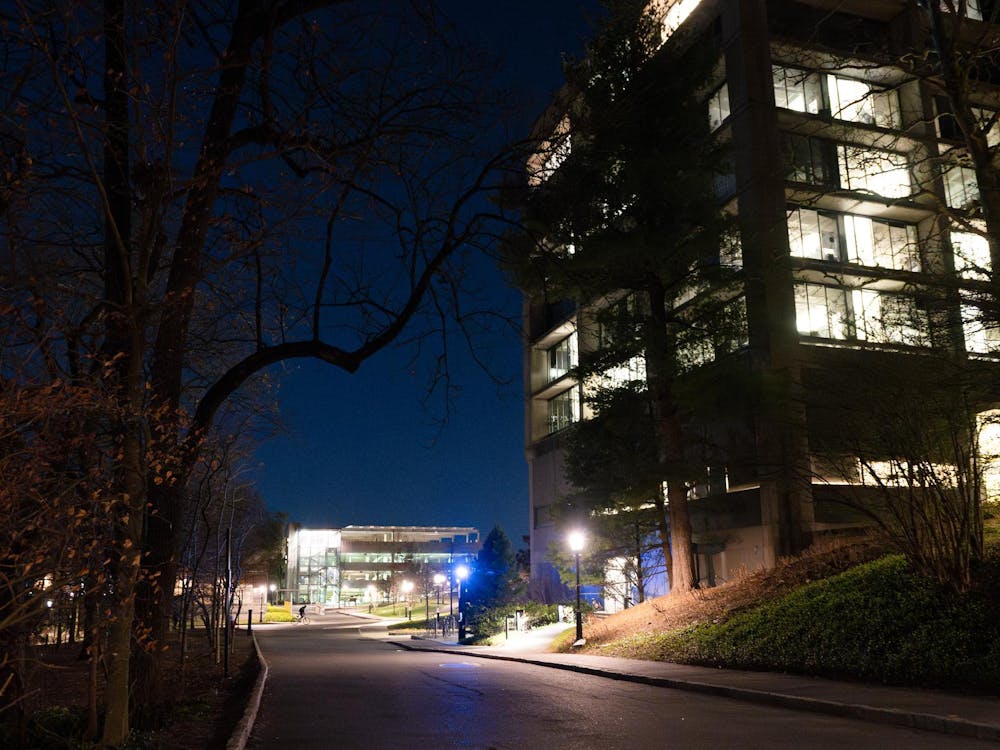I went home for spring break, to Baton Rouge, La. As I walked in the door, the first thing I heard was a political call on our answering machine. I learned — from a woman with a Dolly Parton slur — that Mitt Romney had received an F rating from the National Rifle Association. From the tone of her voice, this was clearly a bad thing.
Going back is hard enough as is.
First there is the mere matter of distance. And we all know that Princeton doesn’t help us spend much quality time with our families over what it likes to call “breaks.”
But on top of this there are the cultural differences that divide our Ivy League institution from the Bible Belt of Baton Rouge. These are not limited to crawfish.
Many people in my family, at my church, in my neighborhood, in the city council, in the school system and in the state legislature believe that homosexuality is a sin and an abomination. They believe this for different reasons. There are, first, and as to be expected, the few fanatics like those who bombed abortion clinics, still intent on launching the next homophobic Crusade and ushering in Armageddon. Then, and most prevalently, there are those well-meaning and pious souls who have rarely if ever traveled beyond the South and not learned to think for themselves. But finally, there are the few theologically astute believers who, in an attempt to reconcile their observations of the world with their faith, nevertheless tend toward a doctrinal condemnation of homosexuality. In short, there are the few that “hate the ‘sinner,’ ” and more that object to the “sin.”
What all three groups share is the Bible, a steadfast belief in its absolute inerrancy and sovereignty over all matters of human existence, and an equally unwavering conviction that the same text demands from them an unambiguous denunciation of homosexuality. To accept, or even compromise on, homosexuality would be to utterly abandon their sacred text, to forfeit their souls. Homosexuality is not a personal or political issue, or even a question of human rights, but a textual concern and a thing of God. Naturally, the worst thing they could do would be to consult homosexuals about their feelings: According to the circular reasoning of the discourse, gays are too mired in “sin” to be able to reason about their feelings in the first place.
I believe that this type of discourse can teach us but that in the long run it is more likely to divide our country.
In one sense, going back to the bayous is like taking a time machine back to the Middle Ages. I say Middle, not Dark, because I think it is overwhelmingly too easy in our own political microclimate of the Northeast to ascribe an automatic sense of progress to the ideas popular here simply because they are more liberal. I do not dislike or discriminate in the least against anyone gay, bisexual, transgender or queer because I have made the personal intellectual decision that my own supposedly “normative” sexuality should not be the standard for those who sincerely say they feel differently. Yet I think it is important, even sometimes healthy, to remember that at least some of those who do have a problem with homosexuality do because they have made a personal determination that would have had serious intellectual resonance in the days of, say, Martin Luther. Years ago, it would have been unthinkable for anyone to assert his independence from the Church, much more his autonomy to determine his own sexual identity. I do not think this is right, but many others do and have not abandoned a like epistemological footing.
The debate over gay marriage has recently featured criticism of conservatives who have likened homosexuality to polygamy, or even to bestiality. But ridiculing these comparisons is exactly the opposite of what serious activists ought to do. It ignores the fact that in the past this was an extremely valid comparison (see, for example, Romans 1:26-7) — and could be once again in the future unless some earnest effort is made to define on an ethical basis why homosexuality is unique from otherwise unacceptable behaviors. Rather than engage in dismissive and ultimately dangerous chronological snobbery, we should seek to learn from and meaningfully distinguish ourselves from our past, at least for the sake of seriously engaging all those across the aisle who are not insane.
And yet I fear that, because of the nature of the increasingly divisive discourse, this task is ultimately impossible. I fear that this debate — and its need for normative standards, for calm and reasoned discourse and for understanding on all sides — ultimately boils down to a battle between rival faiths: between a belief on the supremacy of God and the inerrancy of the Bible on the one side and the freedom of men and women to make reasoned, autonomous choices about their identity and destiny on the other. If this is true, then I sense that, in place of politics, a civil war of irreconcilable ideals is soon to come.
Brandon Bark is a classics major from Baton Rouge, La. He can be reached at bbark@princeton.edu.








